After making syrup, caramel or jam, a black and durable carbon deposit often remains on the bottom of the pan, which is very difficult to clean. During cooking, the sweet mass clings to microcracks on the surface of the cookware and sticks to the bottom. When heated, it literally “eats in” and is difficult to remove without damaging the enamel.
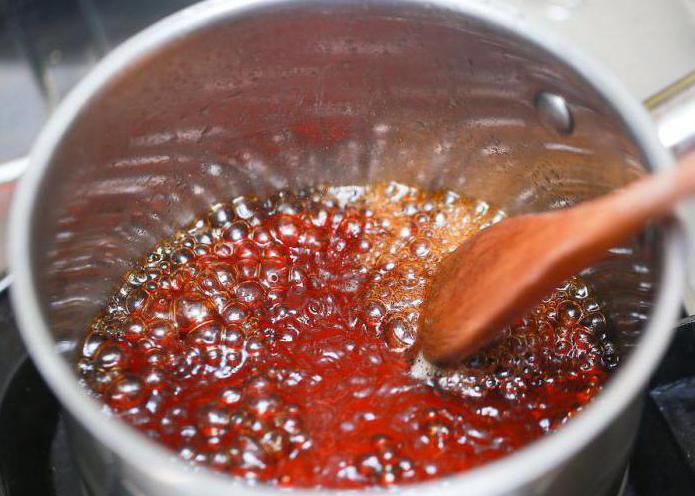
How to clean burnt sugar from a saucepan correctly? There are many ways to clean sugar deposits without damaging the coating of the cookware. Both folk methods using improvised means and household chemicals will help.
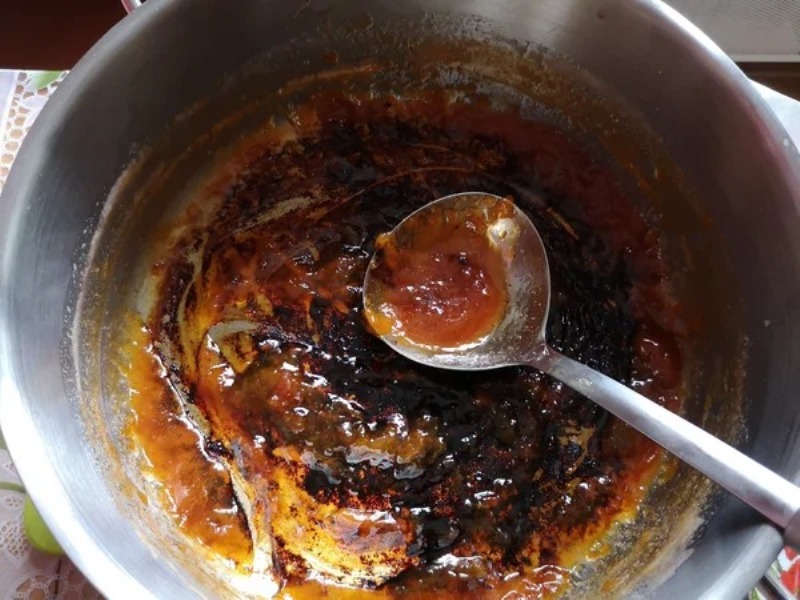
Content
- Fresh caramel stains
- Burnt sugar
- Cleaning depending on the material of the pan
- How to clean a pan from burnt sugar inside at home
- How to clean with household chemicals
- How to remove burnt sugar with citric acid
- Cleaning with table salt
- Remove Sugar Stains with Baking Soda
- We clean with activated carbon
- Cleaning with soap, soda and silicate glue
- How to scrub with tooth powder
- With dry mustard and coffee
- Remove carbon deposits with vinegar
- Preventive measures against sugar burning
- VIDEO: How to clean a badly burnt pan.
Fresh caramel stains
It is much easier to remove the remains of caramel from the bottom of the pan while the sweet mixture is still hot and has not had time to burn too much. A thin layer of caramel can be removed with a kitchen spatula, a thick layer must be soaked in boiling water or soapy water.
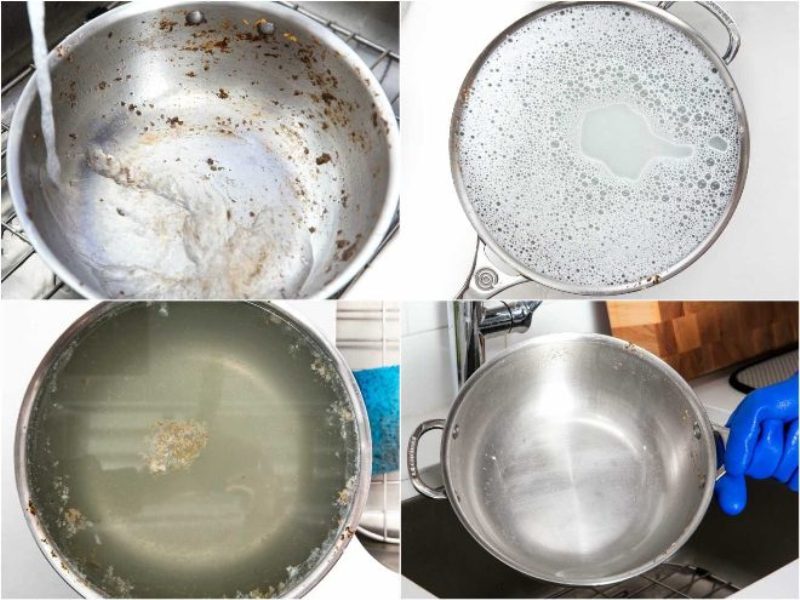
Burnt sugar
It is necessary to get rid of the remains of burnt sugar immediately, while the traces are still hot, while the remains have not yet caramelized. It is necessary to pour boiling water into the pan so that the carbon deposit is completely covered with water. In three hours, the burnt sugar will dissolve and settle to the bottom.
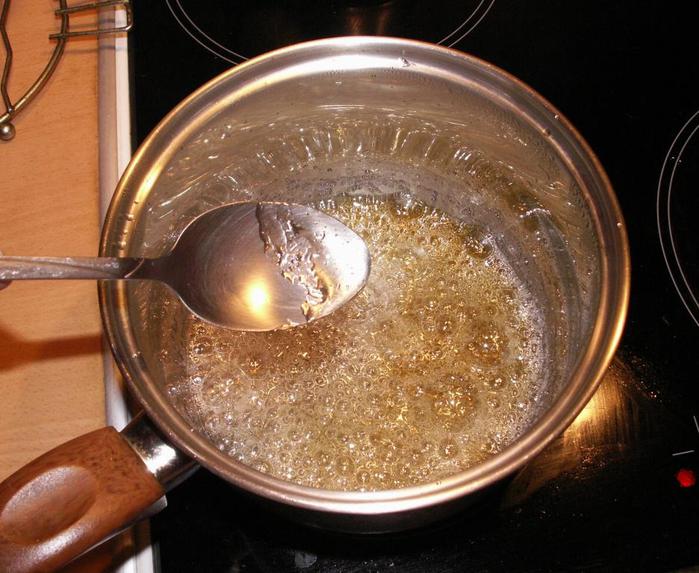
Cleaning depending on the material of the pan
Household chemicals and methods for cleaning burnt sugar should be selected depending on the material from which the pan is made. While cleaning with a metal brush is suitable for aluminum cookware, this method is unacceptable for enamel or Teflon cookware.

Enameled saucepan
When removing sugar deposits from such cookware, you cannot use a metal scraper, as this can damage the coating. Then, during cooking, food will constantly stick to the burnt area. stick to the damaged area, and the enamel can also peel off and get into the cooked food.
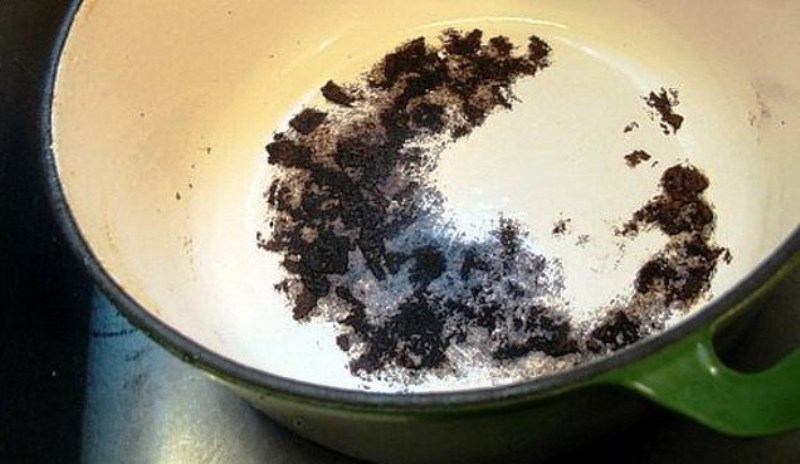
When studying tips on how to remove burnt sugar from an enamel pan, keep in mind that enamel cookware should not be suddenly filled with cold water, since the temperature difference can lead to peeling of the enamel.
ATTENTION! Fresh apple peel will help clean the enamel saucepan. It contains acid that dissolves the burnt layer of the sweet mass.
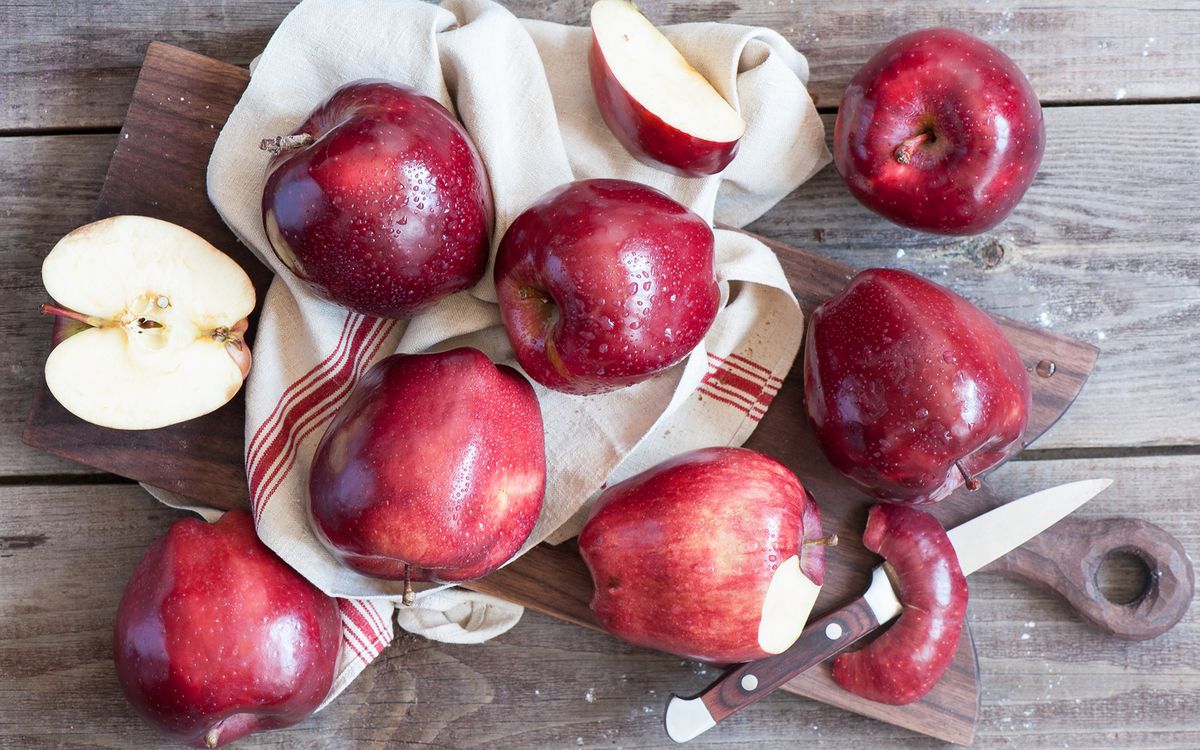
Stainless steel pots
Cookware that includes stainless steel looks elegant and expensive. But it is forbidden to clean the surface of stainless steel pots with any abrasives. Otherwise, not only the appearance will be lost, but also the functionality. Food in such cookware will start to burn.
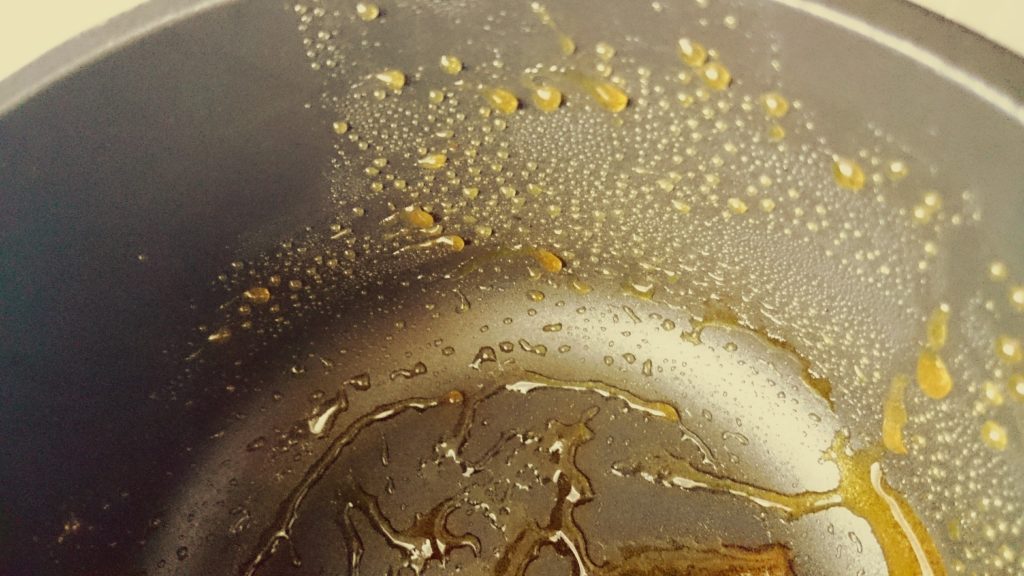
Aluminum pots
Burnt caramel should be washed off aluminum cookware without abrasive or caustic agents. Otherwise, damage may contribute to the release of harmful impurities into the prepared food. You can clean sugar carbon from an aluminum pan using soda, laundry soap, or acetic acid.
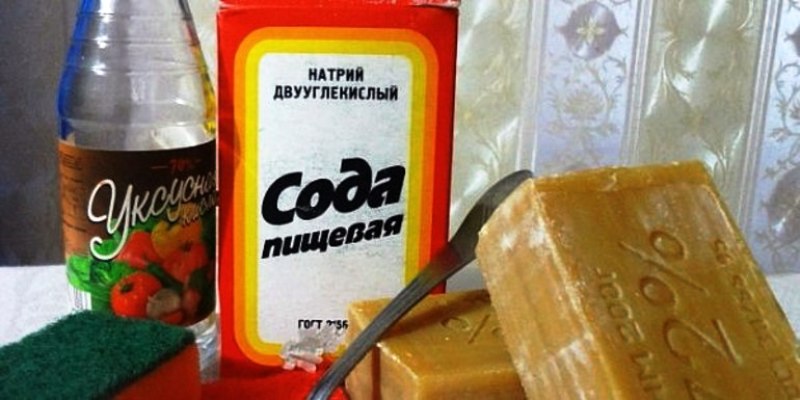
How to clean a pan from burnt sugar inside at home
Household detergents contain synthetic surfactants (surfactants) that reduce the adhesion of burnt caramel to the surface of the cookware. But some detergents contain abrasive particles that can damage the enamel layer.
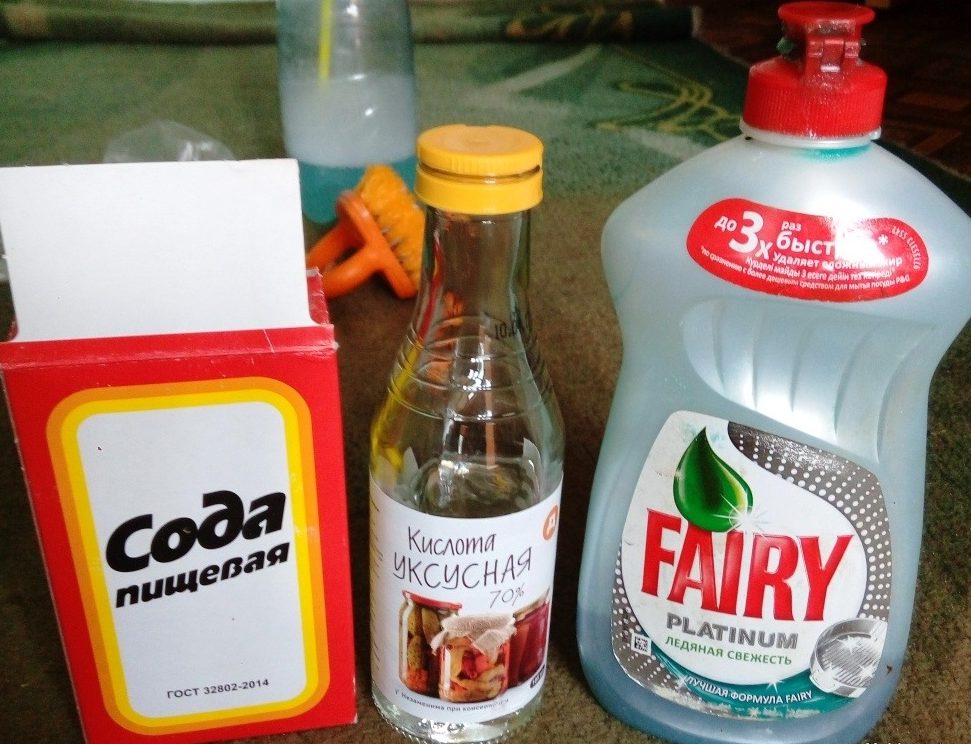
How to clean with household chemicals
There are quite a few options for cleaning a saucepan from burnt sugar. The easiest way to get rid of sugar deposits is to use laundry soap.
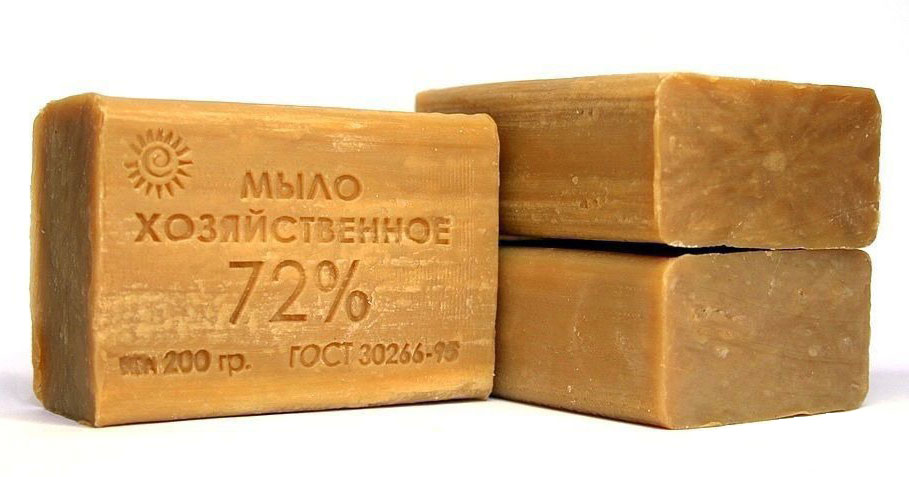
To do this you need:
- Grate the soap on a coarse grater.
- Pour water over the soap to form a thick mass.
- Apply the mixture to the carbon deposits.
- Leave for an hour for the mixture to set.
- Pour boiling water over and simmer over low heat for an hour.
- Cool, wash off the plaque.
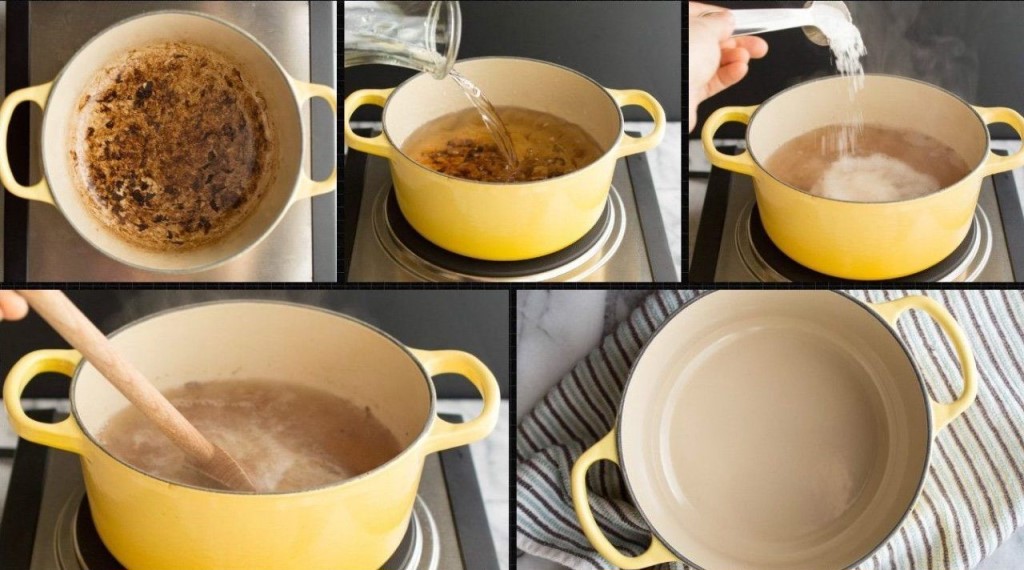
Additional information: under the influence of soap, the carbon deposit will peel off, and the coating of the pan will remain intact.
A bleach solution is also used to combat carbon deposits. It is not used in its pure form for cleaning, diluted by half with water. The dishes are filled with the solution and left for 2-3 hours.
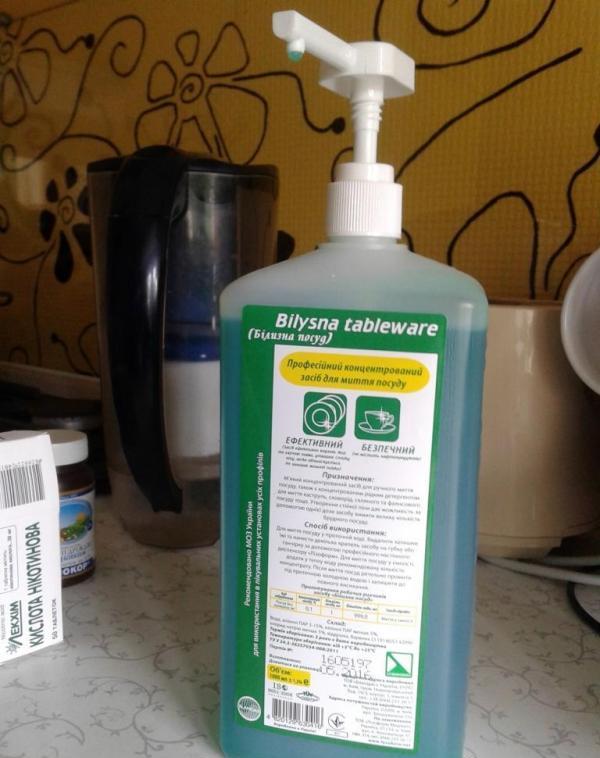
You can also clean carbon deposits using dishwasher tablets. When choosing household chemicals, it is better to opt for a gel or cream detergent. This consistency allows it to stay on the burnt surface better, fills microcracks and helps remove problematic contaminants.
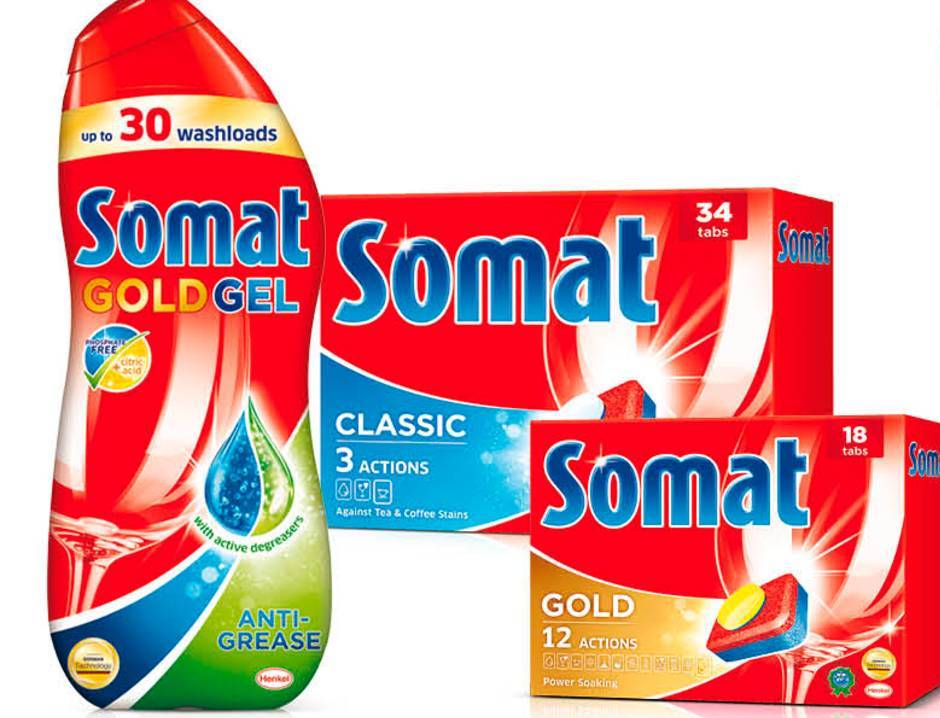
How to remove burnt sugar with citric acid
The acid helps to peel off burnt sugar from the sides and bottom of the pan. This cleaning option is suitable for different types of surfaces, since citric acid acts more gently than other agents, and the acidity level, when properly dosed, does not corrode the coating of the cookware.
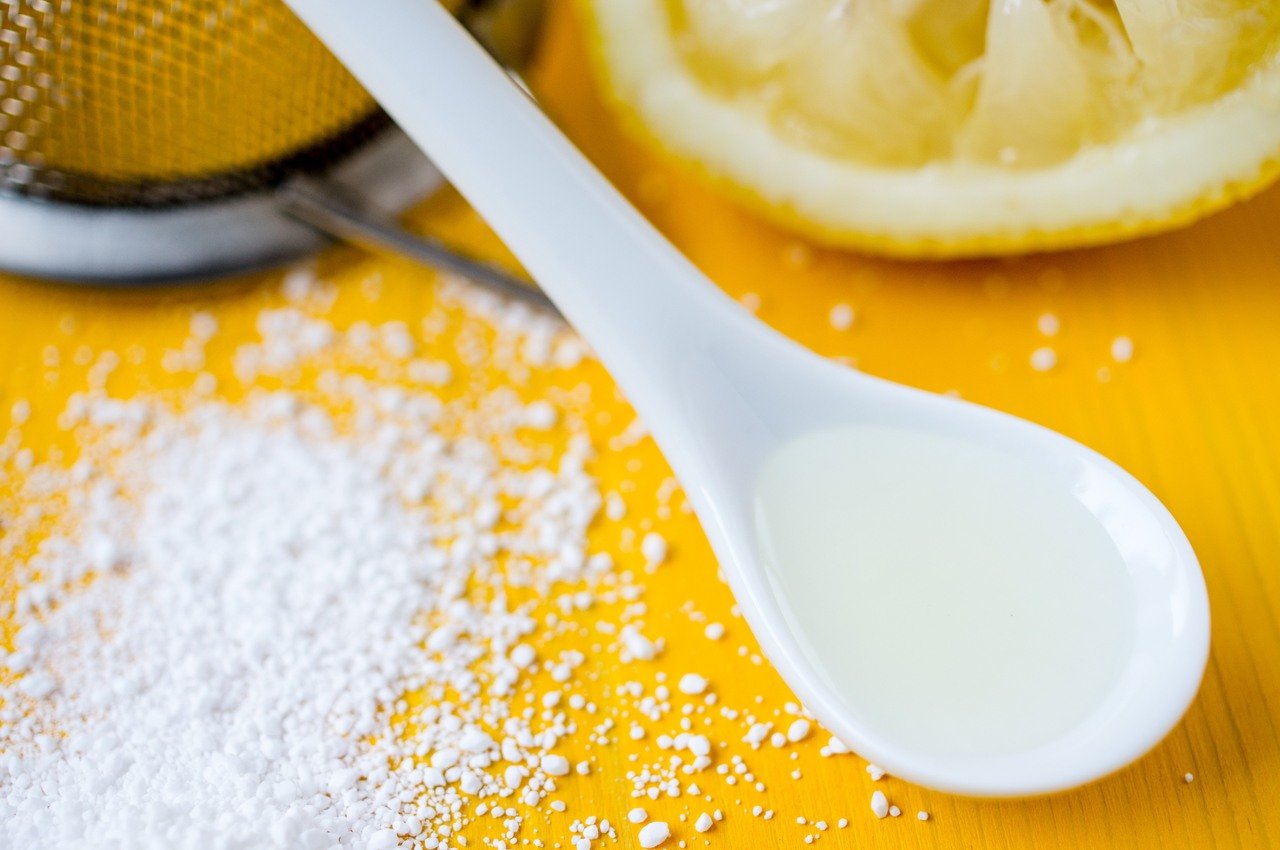
- Fill the pan with water to cover the stains.
- Two teaspoons of concentrated citric acid will be enough for a liter of water.
- Let stand for 5-6 hours.
- Wipe off the carbon deposits with a soft sponge.
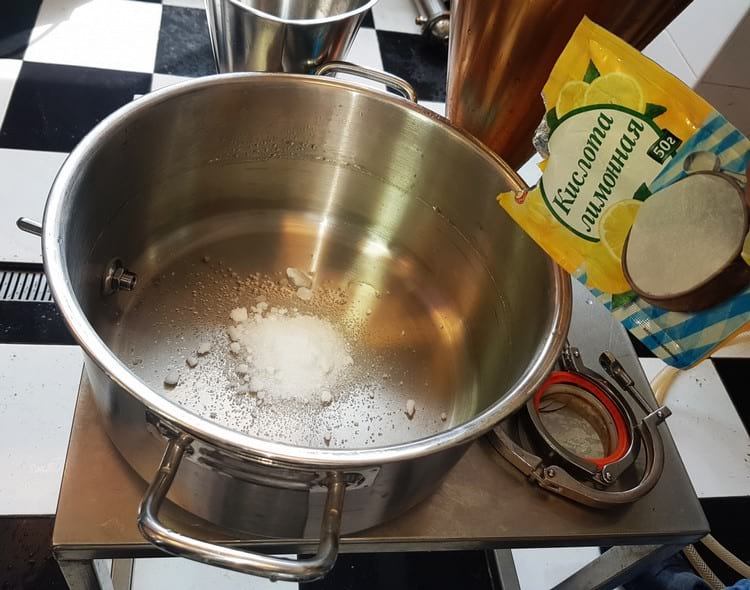
Important! Citric acid can be replaced with natural lemon juice or vinegar.
Cleaning with table salt
Cleaning with salt is suitable for pots with enamel or aluminum coating. However, this method is not suitable for stainless steel cookware, as the salt will leave dark spots on it.

- Fill the dishes with warm water and leave for an hour.
- Then drain the water and sprinkle dry salt on the burnt areas.
- Let it stand for three hours, remove the carbon deposits with a regular soft sponge.
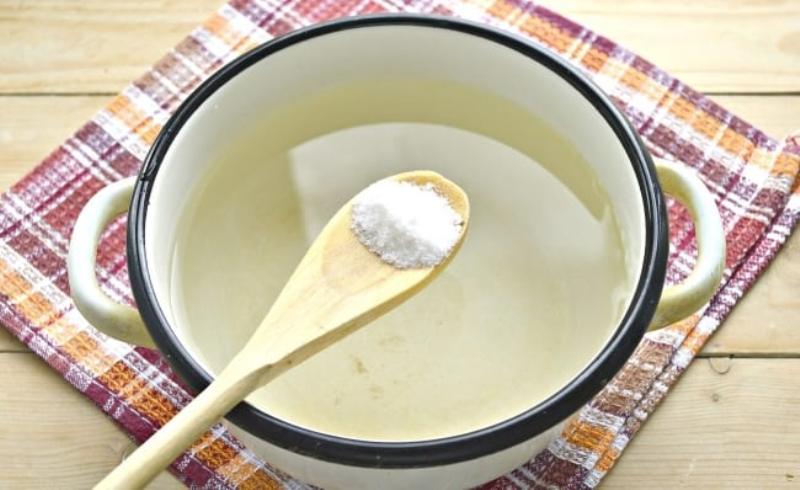
Remove Sugar Stains with Baking Soda
You can also wash away burnt sugar using baking soda. But in this case, it is worth considering that soda contains abrasive particles that can scratch the coating.
- Dilute two tablespoons of baking soda in a soap solution.
- Apply to burnt areas. Let stand for 60 minutes.
- Wash the dishes with warm water.
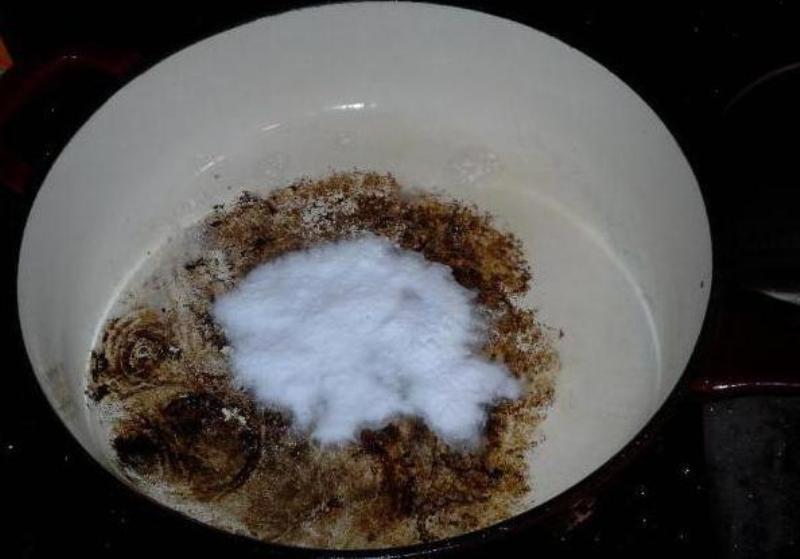
Please note: you can boil a soda solution in a burnt pan for 10 minutes.
We clean with activated carbon
A universal adsorbent, which is usually found in a home medicine cabinet, will help remove sugar deposits from different types of dishes.
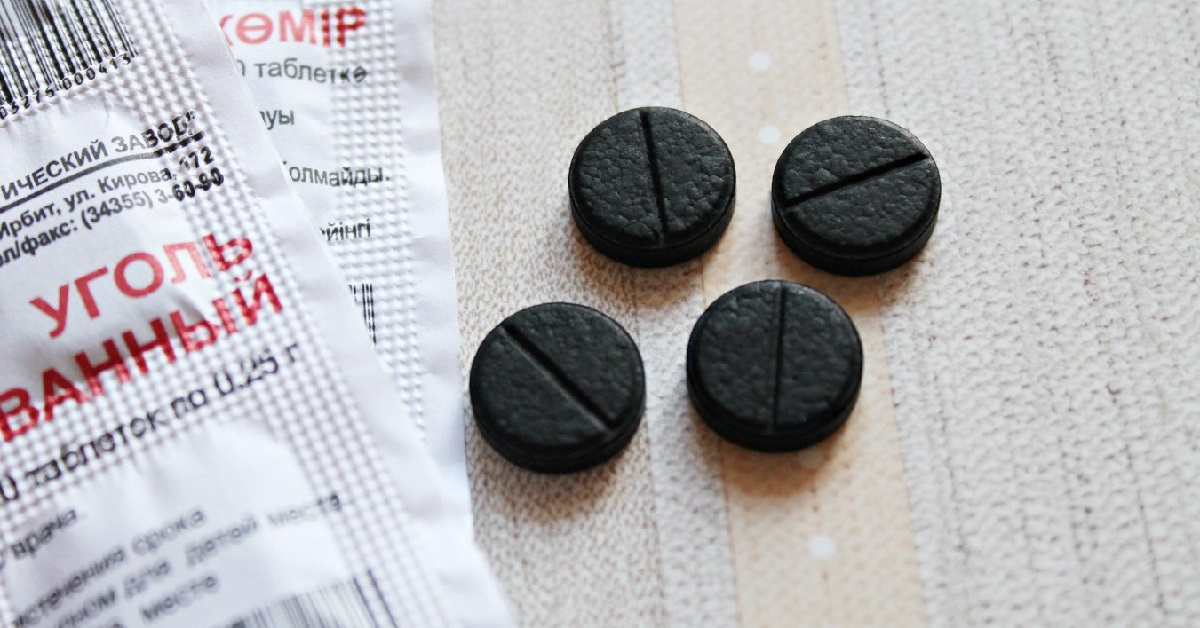
- The tablets must be crushed to a homogeneous powder.
- Dilute with warm water. The mixture should not be too liquid.
- Apply to the burnt layer of sugar caramel and let sit for half an hour.
- Rinse with warm water.
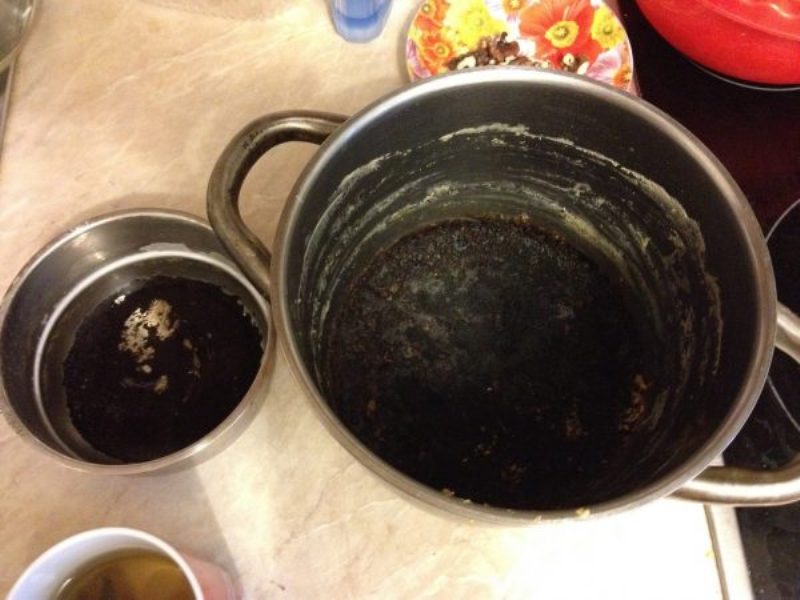
Cleaning with soap, soda and silicate glue
You can remove burnt-on stains using an old Soviet method, tested by our mothers and grandmothers
- Soften the laundry soap and grate it on a coarse grater.
- Fill a saucepan with water and place on low heat.
- Add grated soap to the water, squeeze out a tube of silicate glue and two tablespoons of soda ash.
- Boil for 30 minutes.
- Clean with a sponge and rinse with warm water.
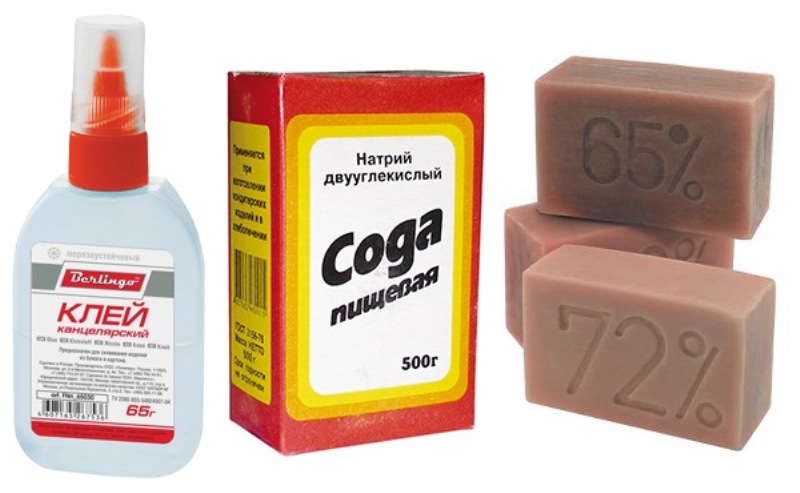
How to scrub with tooth powder
Tooth powder will gently and carefully clean the dishes from sugar deposits, and the stainless steel saucepan will brighten and shine like a mirror.
- Dilute the powder with water until it reaches the consistency of sour cream.
- Apply the mixture to the burnt areas and leave for 12 hours.
- Wash with soapy water.
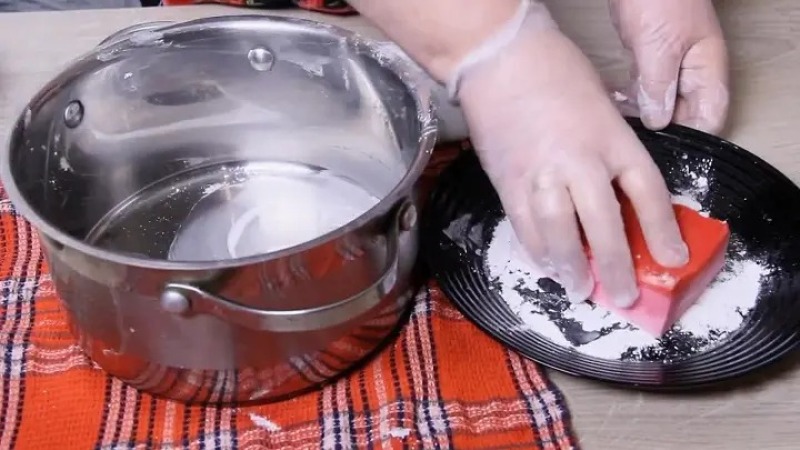
With dry mustard and coffee
Removing carbon deposits using mustard and coffee is a fairly quick and easy method of getting rid of “sugar troubles”.
- Dilute mustard powder and coffee with water to form a thick paste.
- Apply the paste to the burnt areas and let it sit for three hours.
- You need to wipe it off with a soft sponge.
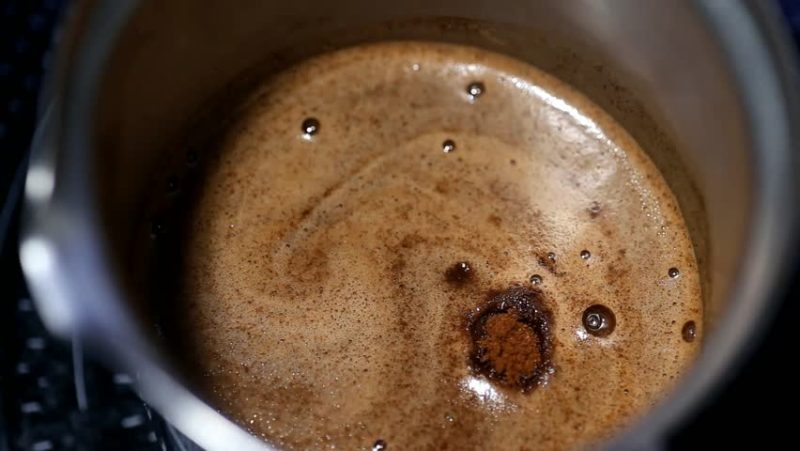
Remove carbon deposits with vinegar
Important: you should clean enamelware not with concentrated essence, but with a 6% solution.
You can use rice, apple or wine vinegar to remove carbon deposits.
- The stains are poured with vinegar so that the burnt layer is completely covered with acid.
- Cover the pan with a lid and let it stand for 4 hours, better to leave it for a day.
- The softened layer is removed with a soft sponge.
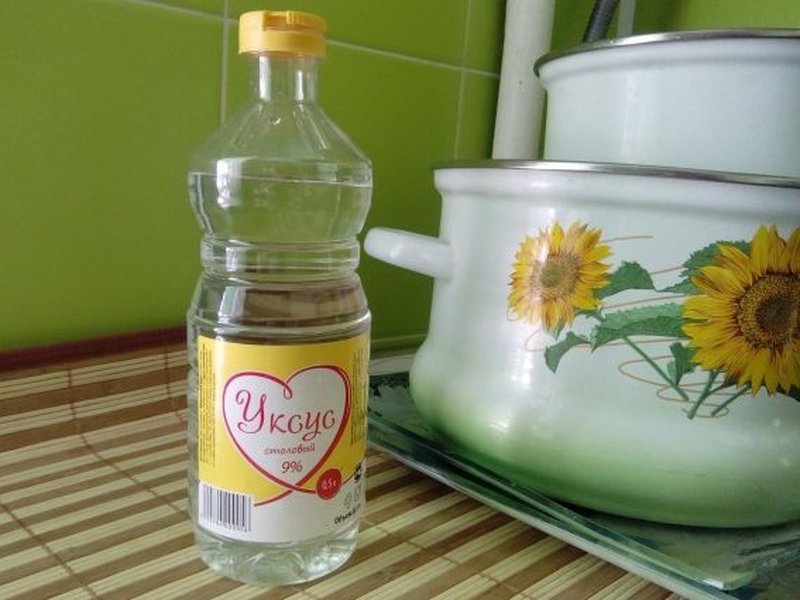
Note! To prevent darkening of enamel cookware, you can use whey.
Preventive measures against sugar burning
You can avoid sugar or caramel burning while making jam, preserves or marmalade by continuously stirring the sweet mass and cooking it over low heat. Stir the jam only with a wooden spoon or spatula. A metal one will scratch the bottom of the pan, which will cause it to burn. If the jam does start to burn, pour it into another pan and immediately fill the burnt pan with water or soda.
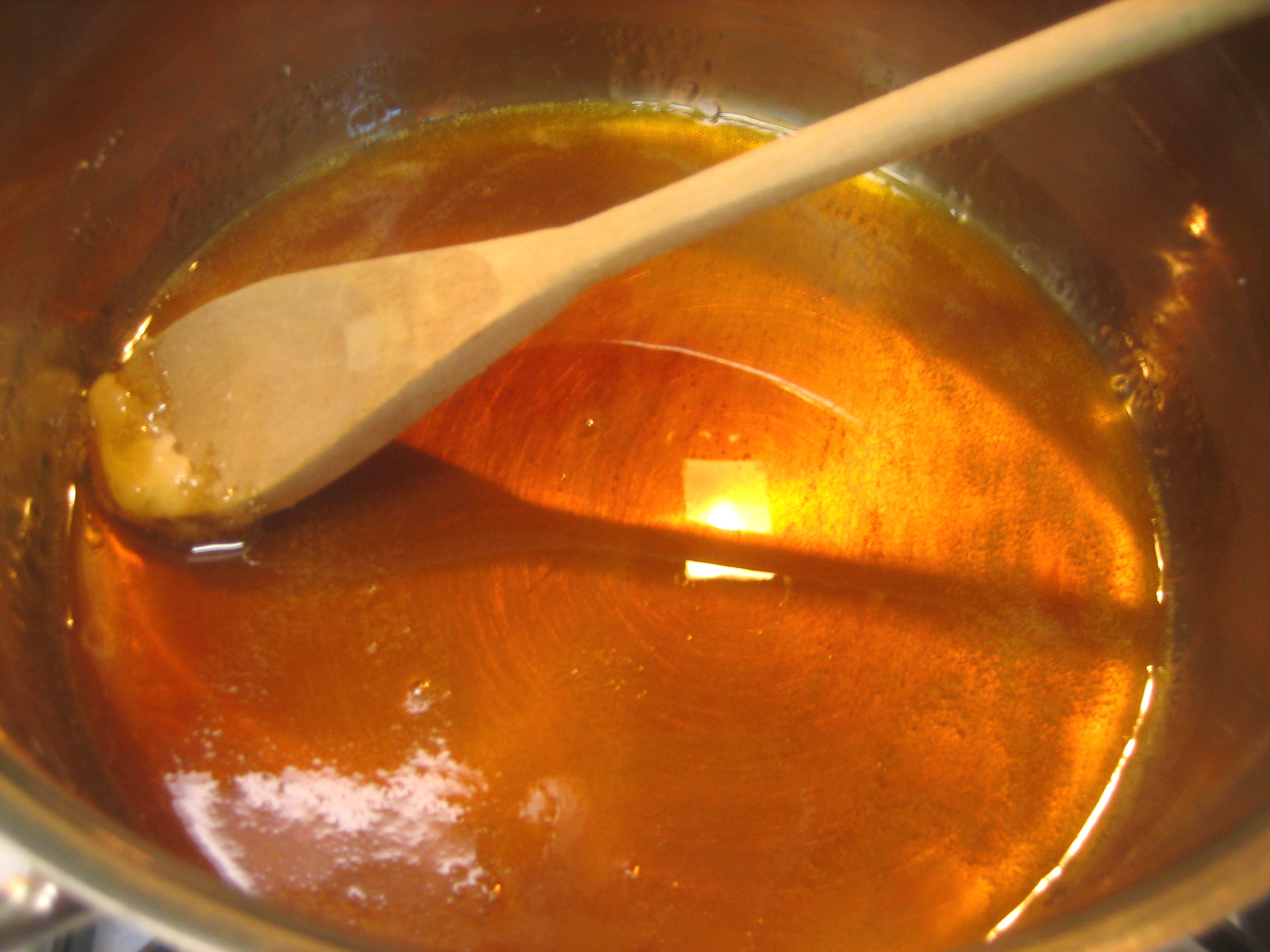

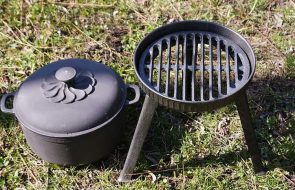

This is the first time I leave a comment on such help sites)) but Soda helped - an enamel pan - after Yergi - berries that should not have been cooked with sugar - hardened so much that I cut myself - in the end either Fairy - or soda most likely - literally a tablespoon and heating for about 10 minutes on medium heat - helped - the jam foamed and seemed to have been re-cooked - washed off easily)))